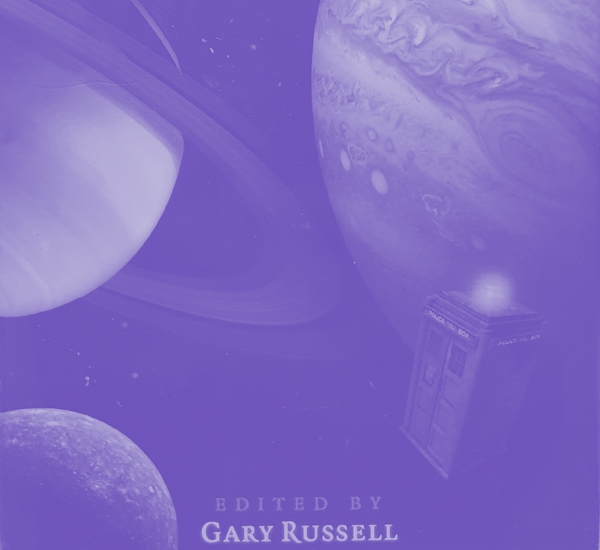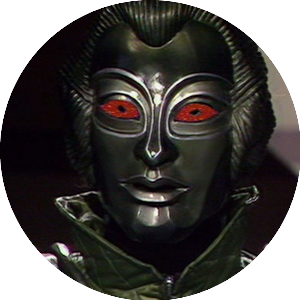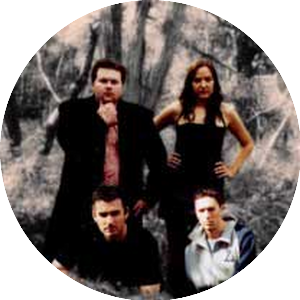Invitation
When my first Doctor Who novel Heritage was published, I desperately wanted to make my mark in the world of Doctor Who. I wanted more novels, short stories, and I wanted audio plays. Big Finish Productions had been set up by Jason Haigh-Ellery and Gary Russell and were licensed by the BBC to produce Doctor Who audio plays starring – at that time – any of the surviving Doctors they wanted. But I knew Big Finish were strictly invite only, and I thought the best thing to do would be to wait for an invite. In my head, closed submissions meant I couldn’t even make contact and say how much I wanted to work with them if the opportunity arose.
Incredibly, my approach nearly worked.
Jacs Rayner – who had pulled Heritage from the BBC’s slush pile – was editing a short story collection for Big Finish called Short Trips: Zodiac, and invited me to pitch for it. I send her a finished story – Virgo – which she politely declined. I was disappointed, but decided that all I needed to do was wait for Big Finish to ask me to pitch again. So I waited.
Nobody asked.
But while I waited, I was invited to go to the Gallifrey convention in Los Angeles. I flew over on the Friday on my own, terrified of aeroplanes and wide awake for every second of the 21 hour flight. I stayed for two nights and then flew back to the UK on the Sunday, still wide awake and terrified but slightly comforted by the knowledge that Colin Baker was also on my flight and somehow convinced that made it less likely it would crash. Everyone was very welcoming, but I was young, nervous and many miles from anyone I knew. I made the mistake of drinking to relax.
By the time I chatted to Gary Russell, I was so relaxed that I still have no clear memory of most of the conversation. At the end of the weekend, I was so embarrassed that I couldn’t bring myself to get in touch with Gary to say sorry, let alone ask if he wanted to hire me. It took two years for me to decide to grow up, and I wrote to Gary to apologise for any offence I had caused and to tell him how much I would like to work with Big Finish. A few months later, I was included on a round-robin email inviting pitches for Gary’s second Short Trips collection, The Solar System.
Inspiration
The invitation to pitch was very specific about what it wanted: stories set on one of the actual planets in the solar system that had a light “space opera” feel to them. Gary also wanted to Doctor and companion combination to be left generic, to give him the chance to pick from as wide a selection of stories as possible and still be able to give fair representation to all of the Doctors. This meant that my default method of coming up with a story quickly – think about the characters and see what I want to explore about them – wasn’t available, so instead I used a similar process with the planets instead.
The “space opera” requirement also led me to think of films like Buck Rogers and Forbidden Planet, who also found their way into the mix a little.
Getting the Story
I settled on two ideas for a story, both of which I worked up into pitches. Neither was very well defined at that point, but the first had the least to it: a day in the life of Bret Vyon, special agent in the Space Corps who died shortly after meeting the First Doctor. The second idea was more tied to the planets – particularly, I’d settled on the small number of moons and planets that probably had water on them. The idea that as Earth’s population grew, water would be more valuable gave me my crew of roughnecks mining in some inhospitable environment.
Combining that with thoughts of Forbidden Planet and the Monsters of the Id gave me enough of a plot to pitch to Gary.
The Pitch
I sent both ideas in to Gary, with a note saying they could be written for any team of Doctor and companion he liked, and giving a list of water-bearing moons and planets the second could be set on.
A short while after the deadline, Gary got back in touch to say that he would take the second idea – water mining and Id monsters.
Editorial
The story was commissioned on the basis that it would feature the Second Doctor, Ben and Polly and be set on Pluto … more specifically, on Charon, the moon of Pluto. Because the Doctor’s companion Jamie was not in the cast, the story had to be set a short time after the Doctor’s regeneration. This specification gave me the idea of writing Ben as still uncertain whether this new Doctor was indeed the same person as the old one, and that gave me most of the emotional meat of the story.
The story was written over a couple of nights, and then left for a few days before getting a second draft. This was, at the time, more conscientious than I was usually with short stories: given the two year wait since I had last been asked to pitch to Big Finish and the lingering sense that I had created a bad impression, I felt the story was my audition for more work with Big Finish and I had to get it right.
What Happened Next?
After the collection was released, I waited again for Big Finish to ask me to pitch something. I had in my head that the Short Trips series operated as a proving ground for unestablished authors: they would ask me to write a few more stories, and if they went well then I would get asked to pitch an audio play.
In reality, the Short Trips series was much more separated from Big Finish than I realised: the company commissioned the editor to provide a finished manuscript, and then left it up to them how they got the stories written. Some editors invited pitches from a large group, others asked only enough authors to fill the book and no more. Gary never edited another Short Trips collection, and the collections I wrote for built my relationship with their editors, not Big Finish. Because I never contacted them directly to see if I could pitch for an audio, they never contacted me.
Whilst I told myself I was working hard and building a relationship, in actual fact I was being lazy and failing to make the most of the opportunity I had been given. I sent a few half-hearted emails in the the generic Big Finish email address, and settled back down into my cosy world of not actually building a career.


